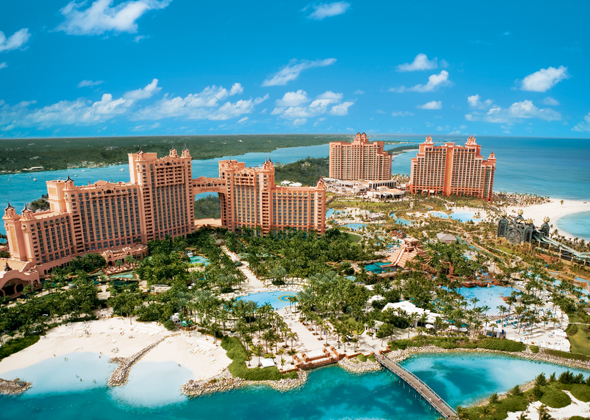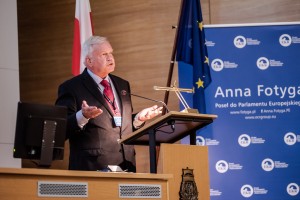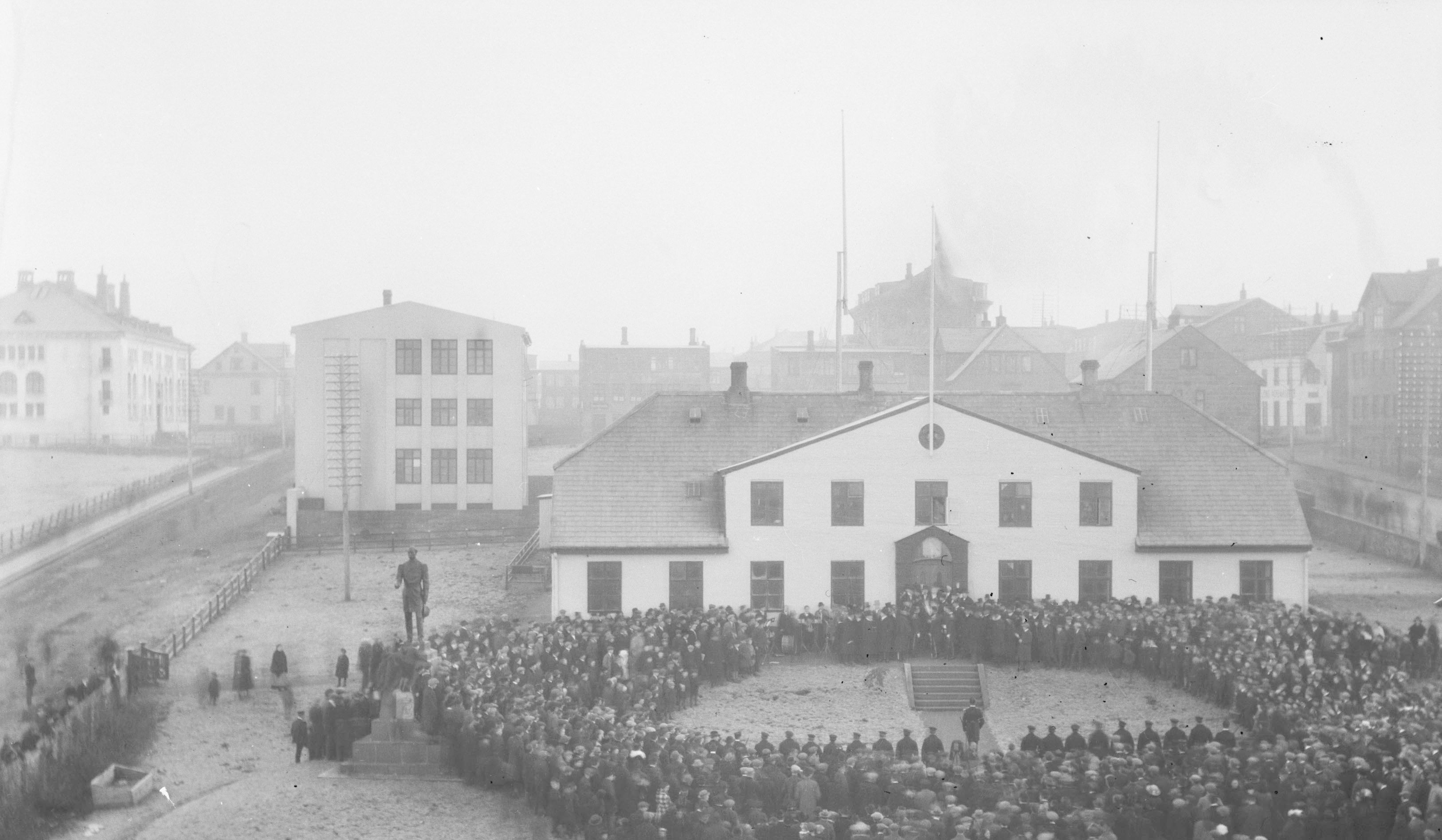 RNH Academic Director, Professor Hannes H. Gissurarson, gave a talk at the Independence Party Association of Kopavogur Saturday 17 November 2018 on the recent report by the Social Science Research Institute of the University of Iceland about the 2008 bank collapse, a report written under his supervision. Gissurarson rejected some explanations offered for the collapse, such as “patriarchy”, or the liberal Icelandic 1874 Constitution, or “neoliberalism”. He said that the use of an Anti-Terrorism Act by the British government against Iceland in the 2008 financial crisis had been both unnecessary and brutal. Moreover, during the crisis the British government had discriminated on the basis of nationality (which was prohibited according to the rules of the European internal market) by assisting all British banks except the two owned by Icelanders. Gissurarson also criticised some of his colleagues at the University of Iceland for supporting the British rather than the Icelandic cause in the Icesave conflict. He wondered why they had wanted to see the nation driven into a debt prison. Was it because they fancied themselves becoming prison wardens? It was, Gissurarson submitted, a complete misunderstanding that the Icelanders had discriminated against British depositors by the Emergency Act of 2008. On the contrary: They had given all depositors, British as well as Icelandic, priority claims against the banks over other creditors, for example German and American banks. If there was any discrimination according to the Emergency Act, then it was between all depositors on the one hand and other creditors on the other hand, while such discrimination could be justified by force majeure.
RNH Academic Director, Professor Hannes H. Gissurarson, gave a talk at the Independence Party Association of Kopavogur Saturday 17 November 2018 on the recent report by the Social Science Research Institute of the University of Iceland about the 2008 bank collapse, a report written under his supervision. Gissurarson rejected some explanations offered for the collapse, such as “patriarchy”, or the liberal Icelandic 1874 Constitution, or “neoliberalism”. He said that the use of an Anti-Terrorism Act by the British government against Iceland in the 2008 financial crisis had been both unnecessary and brutal. Moreover, during the crisis the British government had discriminated on the basis of nationality (which was prohibited according to the rules of the European internal market) by assisting all British banks except the two owned by Icelanders. Gissurarson also criticised some of his colleagues at the University of Iceland for supporting the British rather than the Icelandic cause in the Icesave conflict. He wondered why they had wanted to see the nation driven into a debt prison. Was it because they fancied themselves becoming prison wardens? It was, Gissurarson submitted, a complete misunderstanding that the Icelanders had discriminated against British depositors by the Emergency Act of 2008. On the contrary: They had given all depositors, British as well as Icelandic, priority claims against the banks over other creditors, for example German and American banks. If there was any discrimination according to the Emergency Act, then it was between all depositors on the one hand and other creditors on the other hand, while such discrimination could be justified by force majeure.
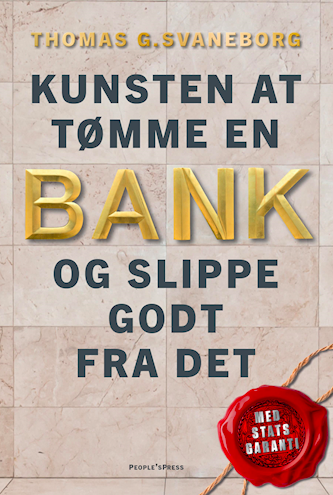 Law student David Orn Jonsson chaired the well-attended meeting, and after Gissurarson’s talk many topics were brought up, such as the controversial 2008 emergency loan to Kaupthing, the 2002 privatisation of the banks, and the contrast between the decent behaviour of the Poles and the Faroese while Iceland was struggling and the unhelpfulness of the other Nordic nations. In response, Gissurarson described the course of events in the Kaupthing loan issue. The managers of Kaupthing had told the governors of the Central Bank of Iceland that it was the government’s will that the CBI extended an emergency loan to Kaupthing. One of the CBI governors had contacted the Prime Minister who confirmed this, and a tape existed of their conversation. The governors probably would have preferred extending an emergency loan to Landsbanki, but they did not want to go against the will of the government, although they, and not the government, were ultimately responsible for the decision. For the loan, the CBI governors had taken collateral worth double the loan, and it had been a general collateral, for all Kaupthing’s debts to the CBI. However, the new CBI governor replacing them after the collapse had been tricked into selling the collateral, the Danish FIH Bank, at a fraction of its worth. The buyers, including pension funds in Denmark and Sweden, had made a huge profit, as described in a Danish book, Kunsten at tømme en bank og slippe godt fra det (The Art of Emptying a Whole Bank and Get Away with It).
Law student David Orn Jonsson chaired the well-attended meeting, and after Gissurarson’s talk many topics were brought up, such as the controversial 2008 emergency loan to Kaupthing, the 2002 privatisation of the banks, and the contrast between the decent behaviour of the Poles and the Faroese while Iceland was struggling and the unhelpfulness of the other Nordic nations. In response, Gissurarson described the course of events in the Kaupthing loan issue. The managers of Kaupthing had told the governors of the Central Bank of Iceland that it was the government’s will that the CBI extended an emergency loan to Kaupthing. One of the CBI governors had contacted the Prime Minister who confirmed this, and a tape existed of their conversation. The governors probably would have preferred extending an emergency loan to Landsbanki, but they did not want to go against the will of the government, although they, and not the government, were ultimately responsible for the decision. For the loan, the CBI governors had taken collateral worth double the loan, and it had been a general collateral, for all Kaupthing’s debts to the CBI. However, the new CBI governor replacing them after the collapse had been tricked into selling the collateral, the Danish FIH Bank, at a fraction of its worth. The buyers, including pension funds in Denmark and Sweden, had made a huge profit, as described in a Danish book, Kunsten at tømme en bank og slippe godt fra det (The Art of Emptying a Whole Bank and Get Away with It).
![ACRE[logo] copy[3][6]](http://www.rnh.is/wp-content/uploads/2016/10/ACRElogo-copy36.jpg) Gissurarson argued that possibly it had not been sensible to privatise the two government banks at the same time in 2002, but that this had been insisted on by the Progressive Party, the junior partner in the government. The banks would have fetched a higher price in total, if they had been sold one after the other. The two groups of buyers had also been different. The S-Group buying Bunadarbanki had been closely aligned with the Progressive Party, as the leader of the group had been the Party’s Vice-Chairman and a government minister. A covert deal had obviously been made immediately to resell the bank to Kaupthing. The Samson Group of three entrepreneurs buying Landsbanki had on the other hand not been aligned in any way with the Independence Party. One member of the group had been a supporter of the Progressive Party, a second was completely apolitical, according to his own pronouncements, while the third one, Bjorgolfur Gudmundsson, certainly had been an active member of the Independence Party in the past, but then in the opposition to Party Leader David Oddsson. Whereas there was no enmity between Gudmundsson and Oddsson, they therefore could not in any way be regarded at the time of privatisation as friends or political allies. Discussing the bank privatisations, Gissurarson quoted Milan Kundera who said that man proceeds on his path in life, not in complete darkness, but in fog. “But when he looks back to judge people of the past, he sees no fog on their path. From his present, which was their faraway future, their path looks perfectly clear to him, good visibility all the way. Looking back, he sees the path, he sees the people proceeding, he sees their mistakes, but not the fog.” On the wisdom of hindsight, it would have been sensible to sell all the bank shares in open tender, ensuring at least initially widely dispersed ownership, as then Prime Minister David Oddsson originally had wanted, against fierce opposition. Of course, some companies would probably have collected together enough shares to gain control, quite possibly the very same groups who eventually bought major shares in the banks. Gissurarson added that he was not sure the Icelandic bankers would have behaved in any other way under different ownership. Bankers all around the world had engaged in risky behaviour before the financial crisis, and some of them had behaved even worse than their Icelandic colleagues who had been reckless rather than criminal. Gissurarson’s talk formed a part of the joint project by RNH and ACRE, the Alliance of Conservatives and Reformists in Europe, on “Europe, Iceland and the Free Market”.
Gissurarson argued that possibly it had not been sensible to privatise the two government banks at the same time in 2002, but that this had been insisted on by the Progressive Party, the junior partner in the government. The banks would have fetched a higher price in total, if they had been sold one after the other. The two groups of buyers had also been different. The S-Group buying Bunadarbanki had been closely aligned with the Progressive Party, as the leader of the group had been the Party’s Vice-Chairman and a government minister. A covert deal had obviously been made immediately to resell the bank to Kaupthing. The Samson Group of three entrepreneurs buying Landsbanki had on the other hand not been aligned in any way with the Independence Party. One member of the group had been a supporter of the Progressive Party, a second was completely apolitical, according to his own pronouncements, while the third one, Bjorgolfur Gudmundsson, certainly had been an active member of the Independence Party in the past, but then in the opposition to Party Leader David Oddsson. Whereas there was no enmity between Gudmundsson and Oddsson, they therefore could not in any way be regarded at the time of privatisation as friends or political allies. Discussing the bank privatisations, Gissurarson quoted Milan Kundera who said that man proceeds on his path in life, not in complete darkness, but in fog. “But when he looks back to judge people of the past, he sees no fog on their path. From his present, which was their faraway future, their path looks perfectly clear to him, good visibility all the way. Looking back, he sees the path, he sees the people proceeding, he sees their mistakes, but not the fog.” On the wisdom of hindsight, it would have been sensible to sell all the bank shares in open tender, ensuring at least initially widely dispersed ownership, as then Prime Minister David Oddsson originally had wanted, against fierce opposition. Of course, some companies would probably have collected together enough shares to gain control, quite possibly the very same groups who eventually bought major shares in the banks. Gissurarson added that he was not sure the Icelandic bankers would have behaved in any other way under different ownership. Bankers all around the world had engaged in risky behaviour before the financial crisis, and some of them had behaved even worse than their Icelandic colleagues who had been reckless rather than criminal. Gissurarson’s talk formed a part of the joint project by RNH and ACRE, the Alliance of Conservatives and Reformists in Europe, on “Europe, Iceland and the Free Market”.
Gissurarson Slides in Kopavogur
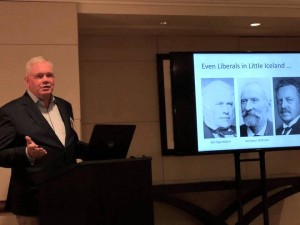 In discussions about the Nordic countries, many mention social democracy, as social democrats rules the three Scandinavian countries for decades in the 20th century. However, there is indeed a strong liberal tradition in the Nordic countries, Professor Hannes H. Gissurarson argued in a paper he read 6 April 2019 at the annual conference of APEE, Association of Private Enterprise Education, on Paradise Island in the Bahamas. Gissurarson recalled that Swedish-Finnish priest Anders Chydenius had advanced a theory about the harmony of private interests and the public good before Adam Smith; and that Swedish statesman Johan August Gripenstedt had in mid-19th century contributed greatly to the first Swedish Model of economic freedom and enterprise. This first model led to tremendous progress: In 1870–1936, economic growth in Sweden was the most rapid in the world. The second Swedish Model was pursued by the Social Democrats in 1970–1990, with high taxes and extensive redistribution, but it proved to be unsustainable, and the Swedes are now following the third Swedish Model, reducing taxation and providing more scope for private enterprise, even if they have not abandoned generous welfare provisions.
In discussions about the Nordic countries, many mention social democracy, as social democrats rules the three Scandinavian countries for decades in the 20th century. However, there is indeed a strong liberal tradition in the Nordic countries, Professor Hannes H. Gissurarson argued in a paper he read 6 April 2019 at the annual conference of APEE, Association of Private Enterprise Education, on Paradise Island in the Bahamas. Gissurarson recalled that Swedish-Finnish priest Anders Chydenius had advanced a theory about the harmony of private interests and the public good before Adam Smith; and that Swedish statesman Johan August Gripenstedt had in mid-19th century contributed greatly to the first Swedish Model of economic freedom and enterprise. This first model led to tremendous progress: In 1870–1936, economic growth in Sweden was the most rapid in the world. The second Swedish Model was pursued by the Social Democrats in 1970–1990, with high taxes and extensive redistribution, but it proved to be unsustainable, and the Swedes are now following the third Swedish Model, reducing taxation and providing more scope for private enterprise, even if they have not abandoned generous welfare provisions.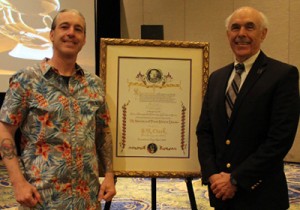
![ACRE[logo] copy[3][6]](http://www.rnh.is/wp-content/uploads/2016/10/ACRElogo-copy36-300x122.jpg) Dr. Jerry Jordan was elected President of APEE, replacing Professor Andrew Young. A monetary theorist, Jordan was President of the Federal Reserve Bank of Cleveland for eleven years. Professor James Ottesen was elected Vice President, Professor Benjamin Powell Treasurer and Professor Edward Stringham Editor of the Journal of Private Enterprise. Professor J. R. Clark was elected Distinguished Fellow of APEE. Gissurarson’s participation in the conference formed a part of the joint project with ACRE on ‘Bluegreen Capitalism for Europe’.
Dr. Jerry Jordan was elected President of APEE, replacing Professor Andrew Young. A monetary theorist, Jordan was President of the Federal Reserve Bank of Cleveland for eleven years. Professor James Ottesen was elected Vice President, Professor Benjamin Powell Treasurer and Professor Edward Stringham Editor of the Journal of Private Enterprise. Professor J. R. Clark was elected Distinguished Fellow of APEE. Gissurarson’s participation in the conference formed a part of the joint project with ACRE on ‘Bluegreen Capitalism for Europe’.

